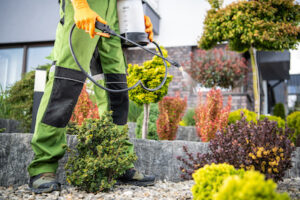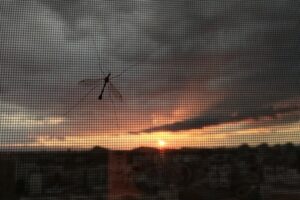Mosquito Prevention During Hurricane Season: Tips for Protecting You and Your Home
Mosquitoes are not only pesky insects but can also pose a significant health risk, especially during hurricane season. As hurricanes bring heavy rainfall and create stagnant pools of water, mosquito breeding grounds multiply, leading to a surge in mosquito populations. This article will provide you with expert advice and practical tips on effective mosquito prevention during hurricane season. By implementing these strategies, you can protect yourself, your loved ones, and your home from the annoyance and potential health hazards associated with mosquitoes.
Mosquito Prevention During Hurricane Season
Hurricanes can create ideal conditions for mosquitoes to thrive. Stagnant water, fallen debris, and increased humidity all contribute to the perfect breeding environment for these blood-sucking insects. To combat this problem and ensure mosquito prevention during hurricane season, follow these essential guidelines:
1. Eliminate Standing Water: The Key to Success
Mosquitoes require standing water to lay their eggs and complete their life cycle. Therefore, the first step in mosquito prevention during hurricane season is to eliminate all sources of standing water around your property. Walk around your yard and inspect any containers, flower pots, birdbaths, or gutters that may collect water. Empty and clean them regularly to prevent mosquitoes from multiplying.
It’s important to note that even small amounts of water can serve as mosquito breeding grounds. Keep an eye out for items such as overturned lids, old tires, or discarded containers that may accumulate water and provide a breeding habitat for mosquitoes.
Expert Tip: By removing standing water, you can significantly reduce mosquito populations and minimize the risk of mosquito-borne diseases.
2. Secure Your Home: Keep Mosquitoes Out
During hurricane season, it’s crucial to protect your home from mosquito invasions. These tiny insects can easily find their way inside through open windows, torn screens, or gaps in doors. To prevent mosquitoes from entering your living space, consider the following measures:
Seal Openings
Inspect your windows and doors for any gaps or openings that mosquitoes could squeeze through. Use weatherstripping or caulk to seal these gaps effectively.
Repair Screens
Ensure that all window and door screens are in good condition, without any tears or holes. If you notice any damage, repair or replace the screens promptly to keep mosquitoes out.
Use Mosquito Nets
If you prefer to keep your windows open for fresh air, consider using mosquito nets. These protective coverings can be installed over beds or windows to create a barrier against mosquitoes.
Mosquito Misting and Barrier Treatments
Mosquito Misting Systems and Barrier Treatments effectively decrease the number of flying insects around your home. Mosquito Misting Treatments are automatic and can be customized to fit your needs. Barrier Treatments generally occur every 2-4 weeks and offer consistent control around your yard.

3. Protective Clothing: Shield Yourself from Bites
Wearing the right clothing can act as a physical barrier between you and mosquitoes. When venturing outdoors during hurricane season, follow these clothing recommendations for maximum protection:
- Cover Exposed Skin: Opt for long-sleeved shirts, long pants, and socks to cover as much of your skin as possible. This reduces the surface area available for mosquitoes to bite.
- Light Colors: Mosquitoes are attracted to dark colors, so choose light-colored clothing to make yourself less visible to these pests.
- Loose-Fitting Attire: Loose-fitting clothing creates a buffer between your skin and mosquitoes, making it harder for them to bite through the fabric.
Did You Know? Mosquitoes are more attracted to individuals wearing dark clothing, as they find it easier to locate their targets against a darker background.
4. Mosquito Repellents: An Effective Defense
In addition to physical barriers, mosquito repellents play a crucial role in mosquito prevention during hurricane season. These repellents work by masking the scents that attract mosquitoes, making you less appealing to them. When choosing a mosquito repellent, consider the type of repellent, duration of protection, and application method. The most common types of mosquito repellents include:
DEET-based Repellents
DEET (N,N-diethyl-meta-toluamide) is a widely used ingredient in mosquito repellents. It provides long-lasting protection against mosquitoes and other biting insects. When using DEET-based repellents, follow the instructions on the label for proper application and reapplication.
Picaridin
Picaridin is a synthetic repellent that is effective against mosquitoes, ticks, and other biting insects. It has a low odor and is less likely to cause skin irritation compared to DEET. Look for repellents with a concentration of 20% or higher for maximum effectiveness.
Oil of Lemon Eucalyptus
Derived from the lemon eucalyptus plant, this natural repellent can provide protection similar to DEET-based products. It is suitable for individuals seeking an alternative to chemical-based repellents. However, it should not be used on children under the age of three.
Permethrin
Permethrin is a repellent specifically designed for treating clothing, shoes, and gear. When applied to fabrics, it creates a barrier that repels mosquitoes and other insects. Follow the instructions carefully when using permethrin-treated items.
Regardless of the type of repellent you choose, be sure to apply it according to the instructions provided. Reapply as necessary, especially if you are spending an extended period outdoors or if you have been sweating or swimming.
Expert Tip: When using both sunscreen and mosquito repellent, apply the sunscreen first and allow it to absorb into the skin before applying the repellent.
5. Maintain Your Yard: Reduce Mosquito Habitats
Taking steps to maintain your yard can significantly contribute to mosquito prevention during hurricane season. Follow these tips to reduce mosquito habitats and create an environment that is less favorable for their breeding:
Trim Overgrown Vegetation
Mosquitoes seek shelter in dense vegetation. Regularly trim bushes, shrubs, and tall grass to minimize potential resting areas for mosquitoes.
Remove Yard Debris
Fallen leaves, branches, and other yard debris can collect water and serve as breeding grounds for mosquitoes. Clean up your yard regularly to eliminate these potential habitats.
Clean Gutters
Clogged gutters can become stagnant water reservoirs, attracting mosquitoes. Clean your gutters regularly to prevent water accumulation and minimize mosquito breeding.
Treat Pools and Ponds
If you have a pool or pond in your yard, take appropriate measures to keep them clean and well-maintained. Use pool covers and treat the water with appropriate chemicals to prevent mosquito breeding.
Interesting Fact: Did you know that female mosquitoes are the ones that bite? They require the proteins found in blood to lay their eggs.
6. Consider Outdoor Lighting: Reduce Attraction
The type and placement of outdoor lighting can have an impact on mosquito activity around your home. Consider the following tips to minimize the attraction of mosquitoes:
Use Yellow or LED Lights
Mosquitoes are less attracted to yellow or LED lights compared to traditional incandescent lights. Consider using these types of lights for your outdoor fixtures.
Avoid Overly Bright Lights
Bright lights tend to attract mosquitoes, flies, and other insects. Opt for lower-intensity lighting to reduce the appeal to mosquitoes.
Strategic Placement
Position outdoor lights away from gathering areas to draw mosquitoes away from where you spend time outdoors. Place lights closer to the perimeter of your property instead.

Frequently Asked Questions (FAQs)
Are mosquitoes more prevalent during hurricane season?
Yes, hurricane season provides favorable conditions for mosquito breeding, resulting in increased mosquito populations. The stagnant water and excess moisture caused by heavy rainfall create ideal breeding grounds for mosquitoes.
Are all mosquito repellents safe to use?
Most mosquito repellents available on the market are safe when used according to the instructions. However, it’s important to follow the recommended guidelines, especially when applying repellents on children or individuals with sensitive skin. If you have concerns or specific health conditions, consult with a healthcare professional before using any repellent.
How long do mosquito repellents typically last?
The duration of protection provided by mosquito repellents can vary depending on the type of repellent and concentration. Generally, DEET-based repellents can provide several hours of protection, while picaridin-based repellents may offer similar durations. Natural repellents like oil of lemon eucalyptus may provide protection for up to two hours. Remember to reapply repellents as necessary, especially if you are sweating or exposed to water.
Can I use mosquito repellent on infants and young children?
It is generally recommended to avoid using mosquito repellents containing DEET on infants under two months old. For children older than two months, choose repellents with lower concentrations of DEET (around 10%) and apply them sparingly. For infants and young children, it’s best to use physical barriers such as mosquito nets and protective clothing to prevent mosquito bites.
Can mosquito repellents be used during pregnancy?
Most mosquito repellents, when used as directed, are considered safe for pregnant women. However, it’s always a good idea to consult with a healthcare professional before using any repellents during pregnancy or if you have any specific concerns.
Are there any natural methods to repel mosquitoes?
Yes, there are several natural methods that can help repel mosquitoes. Some options include using essential oils like citronella, lemon eucalyptus, or lavender. Burning mosquito coils or using fans can also help create a less attractive environment for mosquitoes. However, it’s important to note that natural methods may not provide the same level of effectiveness as commercial repellents.
Conclusion
Mosquito prevention during hurricane season is crucial to safeguard yourself, your loved ones, and your home from the nuisance and potential health risks associated with mosquitoes. By implementing the strategies outlined in this article, such as eliminating standing water, securing your home, using protective clothing and repellents, maintaining your yard, using outdoor lighting, and trusting your local pest control experts to help you find the right mosquito control methods for your property, you can effectively get rid of mosquitos and create a more enjoyable living environment.
Remember to regularly inspect your surroundings, follow proper application techniques for repellents, and take necessary precautions to create an less appealing environment to mosquitoes. By being proactive and vigilant, you can enjoy the outdoors during hurricane season while minimizing the risks associated with mosquito-borne diseases.
